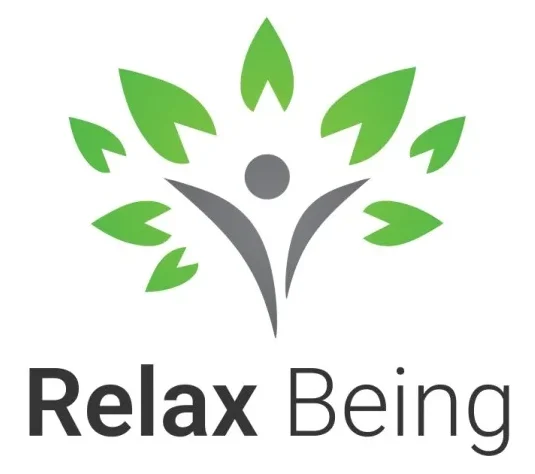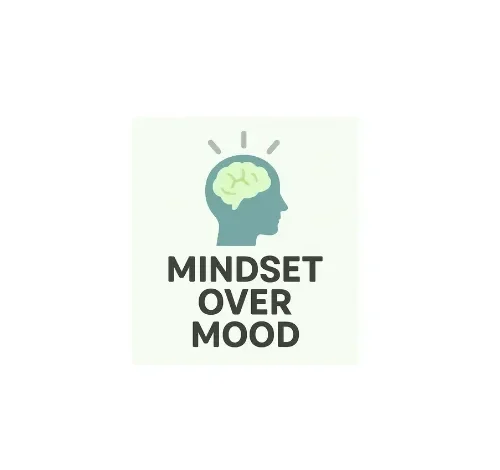
Mental Health Basics
When I first began learning about mental wellness, I realized how crucial it is to see it as more than just the absence of illness it’s about emotional, psychological, and social balance that shapes our daily life. Improving health often involves small but meaningful lifestyle changes, like better sleep routines or mindful eating, which may seem simple but truly impact our well-being. At one point, I felt isolated, and that’s when I discovered the strength of support networks, whether through friends, family, or community groups. Sometimes, however, seeking professional help is needed, and from experience, I can say it doesn’t make you weak it makes you proactive about your growth.
What Is Mental Health?
When we talk about mental health, we are not only speaking about the mind but also about the emotional, psychological, and social sides of our well-being. From my experience working with different communities, I’ve seen how much it influences the way we think, feel, and behave in daily life. It directly affects our ability to cope with stress, overcome challenges, and build strong relationships. When someone struggles, it does not always mean personal failure often, it is about how one learns to recover from life’s setbacks and hardships, while still holding onto their beliefs and values.
The World Health Organization states that mental health conditions are among the leading causes of disability worldwide, affecting millions of people across all backgrounds. What struck me in my own journey is how these challenges are not uncommon, but rather a sign that care and support are needed. They touch everyone transcending age, race, and socioeconomic statuses. The truth is, each of us will face issues at some point, and acknowledging this reality makes it easier to heal and grow without shame.
The Spectrum of Mental Health Conditions
When we talk about mental health, it is not just about whether someone has a disorder or not it exists on a continuum. This spectrum is wide, ranging from everyday stress that everyone may experience at different points in life, to more serious conditions like depression or bipolar. My own journey has shown me that even small challenges can sometimes feel overwhelming, but having the right understanding helps in recognizing where we stand on this line of well-being.
This view also shows us that mental struggles are part of being human, and we must work to reduce the stigma around them. In my work and personal encounters, I’ve seen how open conversations encourage people to share their experience and seek support without fear. Accepting that we all move along this continuum of mental states makes it easier to respond with empathy and compassion.
Factors That Influence Mental Health
A person’s Mental Health is not built on one thing alone; it is a mix of different factors that come together in unique ways. From my own journey of supporting people, I have seen how biological elements like genetics or a history of trauma can create challenges that stay with someone from the past. At the same time, daily choices such as lifestyle patterns and habits play a big role in shaping emotional balance. Even small steps like sleeping better or staying active can make a difference in overall well-being.
Beyond the individual, social surroundings matter just as much. Strong support systems, whether from family, friends, or communities, often provide the encouragement needed to manage stress and heal. In contrast, when these systems are weak, people may struggle more with their psychological health. Over the years, I’ve noticed that a blend of care for the body, mind, and environment works best in protecting mental balance and building resilience for true well-being.
Early Signs and Symptoms
From my own journey and from supporting others, I’ve learned that recognizing the early warning signs of mental health challenges makes a huge difference. Subtle mood changes, quiet withdrawal from friends, or ongoing sleep problems often appear first. These may not seem serious at the beginning, but they are key signals that something deeper could be happening. The sooner someone notices these shifts, the quicker they can seek help.
I’ve seen how much easier it becomes to manage a mental health condition when these patterns are addressed early. Talking openly about what’s going on and sharing small steps forward creates space for healing. Recognizing these small shifts isn’t about labeling it’s about catching things in time, offering support, and guiding someone toward the care they deserve.
Common Mental Health Conditions
From my own work with people facing challenges, I’ve seen how Conditions like anxiety, depression, or PTSD can deeply affect daily life. What many don’t realize is that these struggles are not rare they touch millions of people worldwide. Some also deal with eating disorders or more complex issues such as schizophrenia, each showing different symptoms that can sometimes feel overwhelming. I remember supporting a friend who experienced panic attacks, and it taught me how important it is to notice early signs with empathy and patience.
The good news is that with the right care, many of these challenges can be managed effectively. Whether it’s therapy, lifestyle changes, or medical treatment, each step can help people regain balance. I’ve witnessed how small improvements, like better sleep or open conversations, can make a huge difference. The journey is never the same for everyone, but acknowledging these Conditions is the first step toward strength and healing.
Impact on Daily Life
From my own experience, I have seen how poor mental health can quietly affect different parts of daily life. It can make it harder to focus on work or stay motivated at school, which in turn slows down learning. I once worked with a student who struggled to manage stress, and it not only lowered their self-esteem but also caused tension in their relationships. When the mind feels heavy, even simple tasks can feel overwhelming, and this can reduce the overall quality of life.
What helped in that case was seeking support, whether through friends, family, or professionals. With time, the right strategies can improve balance and restore confidence. I’ve noticed that when people actively care for their mental health, they gain more control and strength to face challenges. This shift allows them to better handle stress, rebuild connections, and create space for a healthier, more fulfilling life.
The Role of Stigma
Stigma is something I have noticed many times in my professional and personal life, and it often stops people from reaching out for help when they need it the most. In community workshops I’ve attended, I’ve seen how silence becomes a barrier, keeping individuals away from proper care. Many admitted that they delayed seeking treatment because they feared being judged. This delay only made their struggles heavier, showing how stigma can quietly harm lives without being spoken about.
What makes a difference is breaking this cycle through awareness and encouraging open conversations. I remember speaking with a young student who said that hearing her friends share their own experiences made it easier for her to seek support. This small act of honesty showed her she wasn’t alone. When we create spaces where discussions feel natural, we not only reduce stigma but also build trust, making the path to recovery more accessible for everyone.
Treatment and Support Options
When it comes to mental health, there is no single path that works for everyone. Each person has a unique story, and the right combination of treatments often depends on their specific situation. In my experience working with individuals facing challenges, I’ve seen how a tailored plan can truly improve their overall wellbeing. Sometimes this includes professional therapy or prescribed medication, while in other cases, focusing on daily self-care practices makes a real difference.
Equally important are support groups, where people find strength in shared experiences and learn practical ways to cope. I once met someone who felt isolated until they joined a group session and realized they weren’t alone in their journey. That moment of connection became as powerful as any medical treatment. Whether through talking, connecting, or practicing healthy habits, the key is finding what works best for the individual and building a sustainable balance of care.
Prevention and Resilience
From my own journey, I’ve seen how building inner strength is not always about big changes but about the small steps we take each day. Developing resilience means learning the right coping strategies and practical skills that help us handle stress before it grows into something heavier. Simple things, like setting healthy boundaries at work or keeping routines that bring balance, create stability in the mind. These steady practices often prevent small worries from turning into bigger emotional issues that feel harder to manage later.
What also makes a difference is having strong social connections. Talking to friends, joining a support group, or even checking in with family gives us strength during difficult times. In my experience, leaning on these connections doesn’t just ease the weight it builds trust and offers fresh ways of seeing challenges. When we actively nurture these bonds, we are better prepared to face life’s twists with courage and hope.
The Connection Between Physical and Mental Health
From my own journey, I have seen how good habits in daily life shape both physical well-being and mental health. When the body feels strong, it naturally supports a calmer mind. Something as simple as regular exercise has helped me not only stay fit but also boost my mood on difficult days. Pairing that with proper sleep gave me more clarity, while balanced nutrition kept my energy steady instead of dragging me down.
Experts often say the body and mind are connected, and I’ve noticed this firsthand. When I made changes to reduce stress, my overall health improved too. A walk outside or a fresh, healthy meal did more than just fuel the body it gave my thoughts space to breathe. These small actions proved that caring for the body directly supports stronger mental health, making life feel lighter and more manageable.
Technology and Mental Health
From my own experience, technology can be both a blessing and a challenge when it comes to emotional balance, as it offers helpful apps, online tools, and even therapy sessions that provide quick resources and valuable support, but at the same time, the constant increase of stress from social media overuse reminds us that using these tools mindfully is just as important as having access to them in the first place.
Promoting Mental Health Awareness
From my own experience of working in schools, I have seen how raising mental health awareness early helps children feel safe to talk about their feelings. The same is true in workplaces and local communities, where open conversations reduce the stigma that often keeps people silent. When leaders show understanding, it encourages others to seek support without the fear of judgment, and that small step can change lives.
The Importance of Seeking Help
Encouragingly, mental health challenges are not a life sentence, as most of these conditions are highly treatable. From my own experience supporting a loved one, I have seen how the first and most crucial step toward healing and recovery is seeking help rather than facing struggles alone. There are many therapeutic approaches that can make a difference, ranging from medication and different forms of psychotherapy, to community support. Knowing that there is a multitude of options available gives people hope and strength to move forward.
In my professional encounters, I have observed that professionals play an invaluable role, but so do groups, such as peer networks, hotlines, and crisis services. These resources are lifelines for those in need, showing that seeking help is not a weakness but a wise choice. Taking this step often unlocks doors to understanding, comfort, and growth proof that with the right support, no struggle has to be faced in silence.
Embracing Unity for Mental Wellness
In my own journey of learning about mental health, I have come to recognize the true essence of embracing a collective mission where we stand together, committed to dismantling the barriers of stigma and misinformation I have witnessed how shared stories and accessible resources become a guiding light for individuals seeking understanding, compassion, and healing. When support is prioritized and made accessible for all, it creates the strength of unity, giving hope that we can pave a brighter future where wellness is not just an option but a vital cause. Through this, I learned that raising awareness, staying unwavering in our efforts, and encouraging others to join ensures that the cause of mental well-being remains alive and powerful.



